#AutomotiveIndustry
Toyota, Stellantis Announce North American Battery Plants
Automakers Toyota and Stellantis separately announced plans to construct lithium-ion battery plants in North America on Monday. With regulatory pressures mounting, the industry has been shifting its eggs between baskets to avoid trouble. But the ultimate goal for most brands is to transition toward selling EVs, requiring meaningful action and financial expenditures on the part of manufacturers.
We’ve already seen General Motors and Ford Motor Co. squabbling over who will nestle the biggest battery facilities between America’s Frost and Sun Belts. It’s only fitting that the remnants of the Chrysler Corporation contained in Stellantis walk the path of electrification, especially now that it’s absolutely riddled with European influence. Meanwhile, Toyota is predictably exercising a bit of caution as it similarly navigates how to modernize itself via upcoming lithium-ion plants.
Dual Realities: VW CEO Claims Slow EV Shift Could Cost 30,000 Jobs
Like the rest of the world, the automotive industry is currently living in two distinct realities. Labor unions and part suppliers have been sounding the alarm that electric vehicles will require far fewer hands to manufacture and will ultimately lead to their demise. But battery firms, establishment politicians, and most automakers have claimed that transitioning to EVs is entirely necessary and will result in there being a surge of high-paying jobs to replace those lost.
Then there are claims you can’t quite wrap your head around, like the one Volkswagen CEO Herbert Diess reportedly made to the supervisory board in September. The Diess Man asserted that VW would lose 30,000 jobs if it transitioned too slowly to electrics, framing the situation around Tesla arriving in Germany and fresh competition from Chinese manufacturers. While it’s certainly possible that VW could take a hit as its rivals move on Europe, the premise that it’s going to cost the business jobs is sort of bewildering when just about every analyst agrees that electrification will result in a leaner workforce across the board.
Car Loans Get Longer, Rental Vehicles Get Older
While nobody needs to tell you that the economy isn’t in good health, we should at least hip you to the latest automotive trends relating to the financial purgatory we’re currently living through. Ford sent a memo to dealers last week indicating that it would be removing the minimum FICO requirement for 84-month financing, indicating that the industry may soon normalize auto loans that are even longer than the 72-month whoppers that have grown in popularity over the last several years.
Meanwhile, those needing a vehicle intermittently will find that rental rates have not been declining as hoped. Despite analysts previously suggesting that auto pricing may stabilize through the fall, we now look to be going into the holidays facing familiar high-priced troubles — and there’s really no reason to think that’s going to change after 2022 gets here.
Tesla Officially Moving to Texas, Elon Musk Confirms Austin HQ
Tesla CEO Elon Musk has officially announced that his company would be moving house this week. Currently nestled upon the bosom of Silicon Valley in Palo Alto, CA, the automaker has expressed its intent to establish a new base of operations in Austin, TX. While this situation has been a long time coming, it’s not quite the prompt walkout that everyone was predicting 17 months ago.
At the start of the pandemic, Musk found himself at odds with local officials pushing strict COVID lockdowns. The CEO had wanted to keep the all-important Fremont facility up and running at the start of 2020, suggesting workers could simply choose to stay home without there being any negative repercussions (or pay). Told again to shut down, Tesla sued Alameda County on the grounds that its orders were unconstitutional and violated a return-to-work mandate recently issued by Governor Gavin Newson. Before long, Elon Musk was openly confessing he was fed up with the state of California and would be relocating the business.
UK Vehicle Registrations Fall Into Bottomless Pit
Despite manufacturers still managing to turn a profit, the automotive sector hasn’t been in the best of health these last few years. Growth appears to have plateaued in most Western nations, encouraging companies to cater this business toward other markets, supply chains have also been negatively impacted by the pandemic — with semiconductor shortages hindering production schedules on a scale we’ve not seen since the Great Recession.
It’s a bad situation and rumored to get worse if the warning cries of economists are to be believed. But there’s also mounting evidence to support their claims. The Society of Motor Manufacturers and Traders (SMMT) recently reported that vehicle registrations in the United Kingdom fell by roughly 35 percent in September vs the same timeframe in 2020. This is relevant because the month typically represents the second-busiest period for the country and numbers were already low due to production stops created by coronavirus lockdowns.
Opinion: Tesla's Full-Self Driving Beta Is a Bad Joke
Earlier this week, Elon Musk announced that Tesla would begin offering the Full Self-Driving (FSD) Beta to testers that had achieved sufficiently high marks in its new “safety score.” While company has repeatedly promised to launch FSD in earnest, which costs $10,000 to purchase or $199 a month to rent (depending on which version of Autopilot you’re using), the system has been habitually delayed from getting a widespread release. This has upset more than a few customers operating under the assumption that having bought into the service actually meant something.
That said, the rollout has technically begun and continues encompassing more users. But regulators are annoyed that the company is now testing FSD’s functionality on thousands of paying customers and the terms in which Tesla is offering FSD has changed in a manner that makes your author extremely uncomfortable. The automaker originally intended to provide the system via a simple over-the-air (OTA) update as availability expanded. However Tesla now has a button allowing drivers to request FSD by opening them up to a period of scrutiny where their driving is digitally judged. Despite your having already shelled out cash for it, access to the beta is determined by the manufacturer’s safety score.
Daimler Getting Back Into Bed With Chrysler for Battery Biz
Daimler is getting cozy with Chrysler again, or at least the American side of Stellantis, so they can tackle battery development and production. Those in the know will recall that Chrysler has been passed around more than a bottle of booze at a middle school party. But its long history of partnerships also kept it in business and resulted in some of its better products.
Before the Amero-French merger that resulted in Stellantis, Fiat Chrysler Automobiles was an Italian-American company with facilities dotted around North America. Prior to that, it was known as DaimlerChrysler – resulting in the LX Platform, Pentastar V6, and a wider variety of Jeep Wranglers. Now, Chrysler’s alienated German wife has shown up on the doorstep with a wad of cash and news that she’ll be investing it into the new battery business.
Automakers Accused of Chip Hoarding, U.S. Considers Defense Production Act
Despite the occasional media report claiming that the semiconductor shortage is nearly over, reality looks quite a bit different. Some manufacturers have managed to temporarily stabilize supply chains, even though others have continued announcing work stoppages as they run out of chips. Wait times for the electronic components have also increased by about 61 percent since the beginning of 2021. Meanwhile, a recent Kelly Blue Book survey had 48 percent of respondents saying they were going to postpone buying a new automobile until shortages end, prices come down, and they can actually find the vehicles they’re looking for. But even those that were willing to buy now expressed a surprising level of acceptance to abandon brand loyalty or their preferred body style just to get a fairer deal on an automobile.
With the United States fairing worse than other regions in regard to chip availability, the White House has been under pressure to solve the problem all year. Thus far, government strategy has focused on encouraging investments for new semiconductor production. But there’s a new gambit being proposed that would invoke a Cold War-era national security law that would force manufacturers to furnish information pertaining to semiconductor supply lines and chip sales.
German Startup Driving Around Autonomous Vehicle Hurdles
Despite the concept of autonomous cars suggesting a seamless, hands-free driving experience as far back as the late 1950s, only the peripheral technologies have made their way into the real world. Our ancestors would have marveled at the video displays, powertrains, and navigation systems available today. But the 21st century concept of “mobility” has also turned out to be a bit of a scam.
Formerly a catch-all term for autonomous transportation, the phrase has been redefined by the industry to pertain to subscription fees, over-the-air updates, digitally affixing your credit card information to the vehicle, and just about any present-day feature it’s interested in selling. Meanwhile, the self-driving programs that kicked off the would-be renaissance have been stagnating as companies cannot quite figure out how to teach a car to successfully assume all of the duties of a human driver. However there’s a German startup that’s attempting to circumvent those obstacles by employing digital chauffeurs working from far-off locations.
Vaccine Mandates Being Considered By Auto Industry, UAW
With the Biden administration having announced that it would start requiring companies to vaccinate employees, automakers and UAW are finding themselves in a sticky situation. Unions had previously said they wanted to hold off on endorsing or opposing mandatory vaccinations until after they discussed things with the industry and their own members. Considering Joe Biden said he wouldn’t make vaccines mandatory less than 10 months ago, employers are getting caught with their pants around the proverbial ankles.
Automakers had previously been surveying white-collar workers to see what they wanted to do while upping on-site COVID restrictions, but operating under the impression that any hard decisions were likely a long way off and left entirely to their discretion. Now the Department of Labor’s Occupational Safety and Health Administration is planning a new standard that requires all employers with 100 (or more) employees to guarantee their workforce is fully vaccinated or require any unvaccinated workers to produce a negative test result on a minimum weekly basis.
Opinion: Automakers Reinstating Nationwide Mask Mandates Is a Mistake
Detroit automakers and the UAW have elected to reinstitute national masking mandates for all of their facilities, starting Wednesday. General Motors, Ford, and Stellantis have issued a joint announcement clarifying that the rules are in accordance with the updated guidance from the Centers for Disease Control and Prevention (CDC) recommending masks be worn by all persons regardless of their vaccination status.
Based upon the text included in the release, the industry seems aware that the decision will be unpopular and is doing its utmost to transition responsibility without absolving itself entirely.
GM Prioritizing Pickup Production Over Crossovers, Sedans
General Motors will resume full-size pickup assembly next week, leaving its crossovers will have to continue enduring production hang-ups related to the semiconductor shortage. American manufacturers have been absolutely creamed by supply shortages this year and a lack of chips really hurt pickup volumes. We’ve seen a lot of creative solutions, including automakers putting unfinished vehicles on the lot in hopes that they can install the missing hardware later.
But GM’s latest solution involves prioritizing Michigan’s Flint Assembly, Indiana’s Fort Wayne Assembly, Silao Assembly in Mexico — all of which were previously idled or operating on reduced schedules. Unfortunately, that means giving other North American facilities more downtime and, sadly, plenty of it.
Audi Abandoning Subcompact Cars Over Regulatory Pressure
Audi is discontinuing the A1, citing Europe’s regulatory landscape as the main cause. Eager to limit the amount of CO2 coming out of tailpipes, the European Union has placed strict limits on petroleum-powered passenger vehicles. For Audi, the price of manufacturing a subcompact automobile-dependent upon internal combustion is getting too high. Installing a smaller motor would negatively impact drivability while slotting in a hybrid powertrain means more R&D costs and jacking up the MSRP to a point where consumers might lose interest.
There’s just not much incentive to build small, efficient vehicles when the profit margins have been made razor thin and people aren’t buying them in great numbers. And this is a lesson that’s being learned by all automakers, not just those associated to Volkswagen Group.
UAW and General Motors Are Backing Mask Mandates Again
Despite American carmakers and the United Auto Workers abandoning mask mandates at the end of June, there’s been an about-face in Wentzville, Missouri. The state witnessed an uptick of cases, encouraging both the UAW and General Motors to reintroduce masks and social distancing protocols.
The facility is responsible for the GMC Canyon and Colorado, as well as Chevrolet’s Savana and Express. It’s also likely to be the first facility of many we’re assuming will be told it’s time to go back to the old masking rules. But why is this happening so soon after everyone was given the green light to return to normal operations?
It's Not Just Pricing, Auto Loans Are Also Getting Out of Hand
As you’re undoubtedly aware, now isn’t the best time to purchase a new vehicle. While you can currently sell your ride for more than it’s realistically worth, the economy is anything but stable as inflation and supply shortages gum up the works. A lack of semiconductor chips has caused the automotive industry to stutter endlessly throughout 2021, with the issue getting so bad that some manufacturers have been building unfinished vehicles just to give their employees something to do. Ford is even mulling over a strategy to ship those units directly to dealerships so they’ll have something on the lot — effectively making its retail network responsible for final assembly.
But the logistics nightmare is only part of the story. Automotive loans are also becoming untenable as terms stretch out endlessly. Cars continue getting more expensive and the average consumer is losing their buying power. The preferred solution is for financiers to extend agreements so customers can continue making the same monthly payments while accruing more on interest over the duration. While effective in the short term, and bound to make banks money as we’re all driven deeper into debt, one wonders how this plays out on a grander scale.



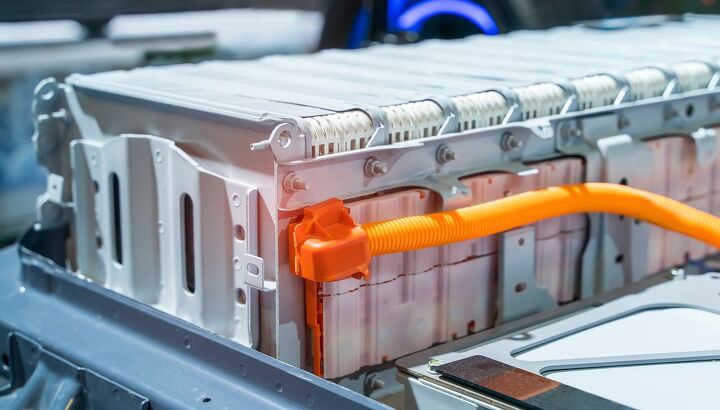






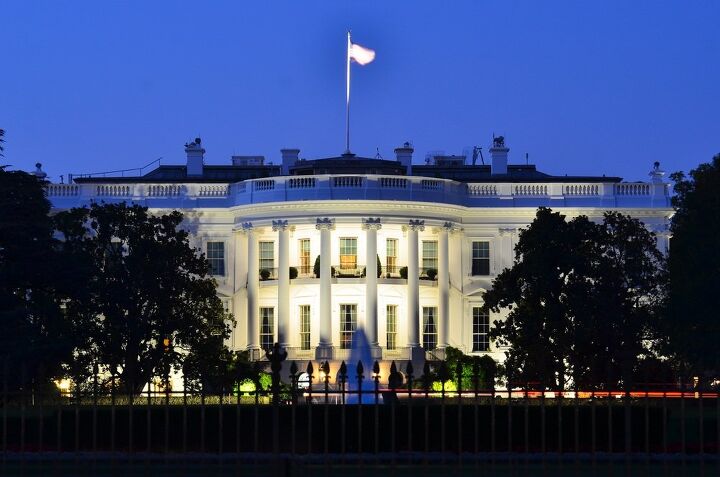
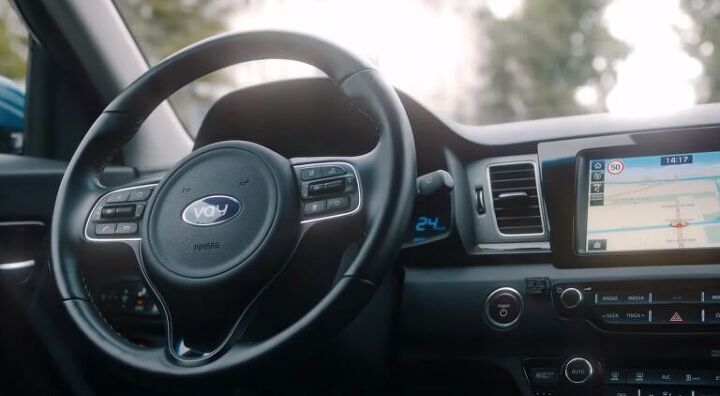
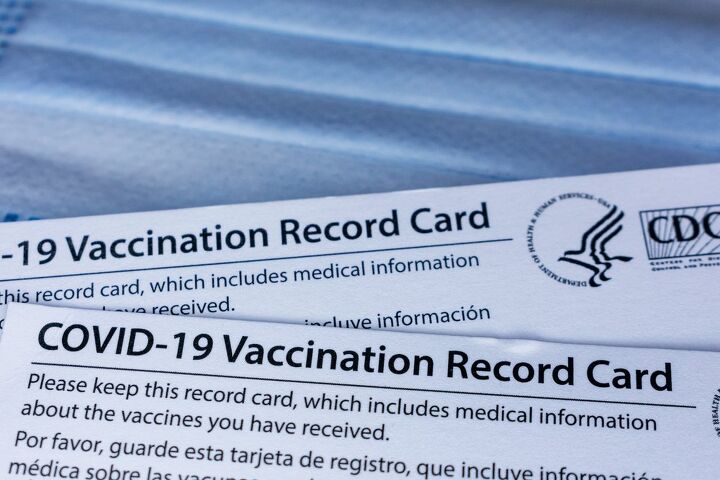

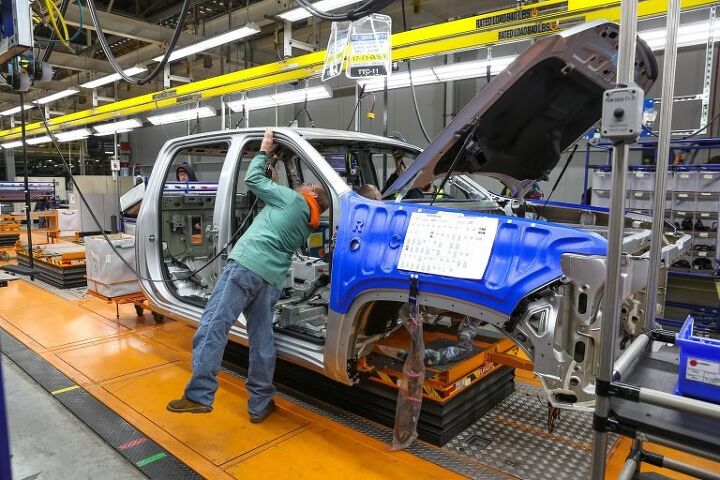














Recent Comments